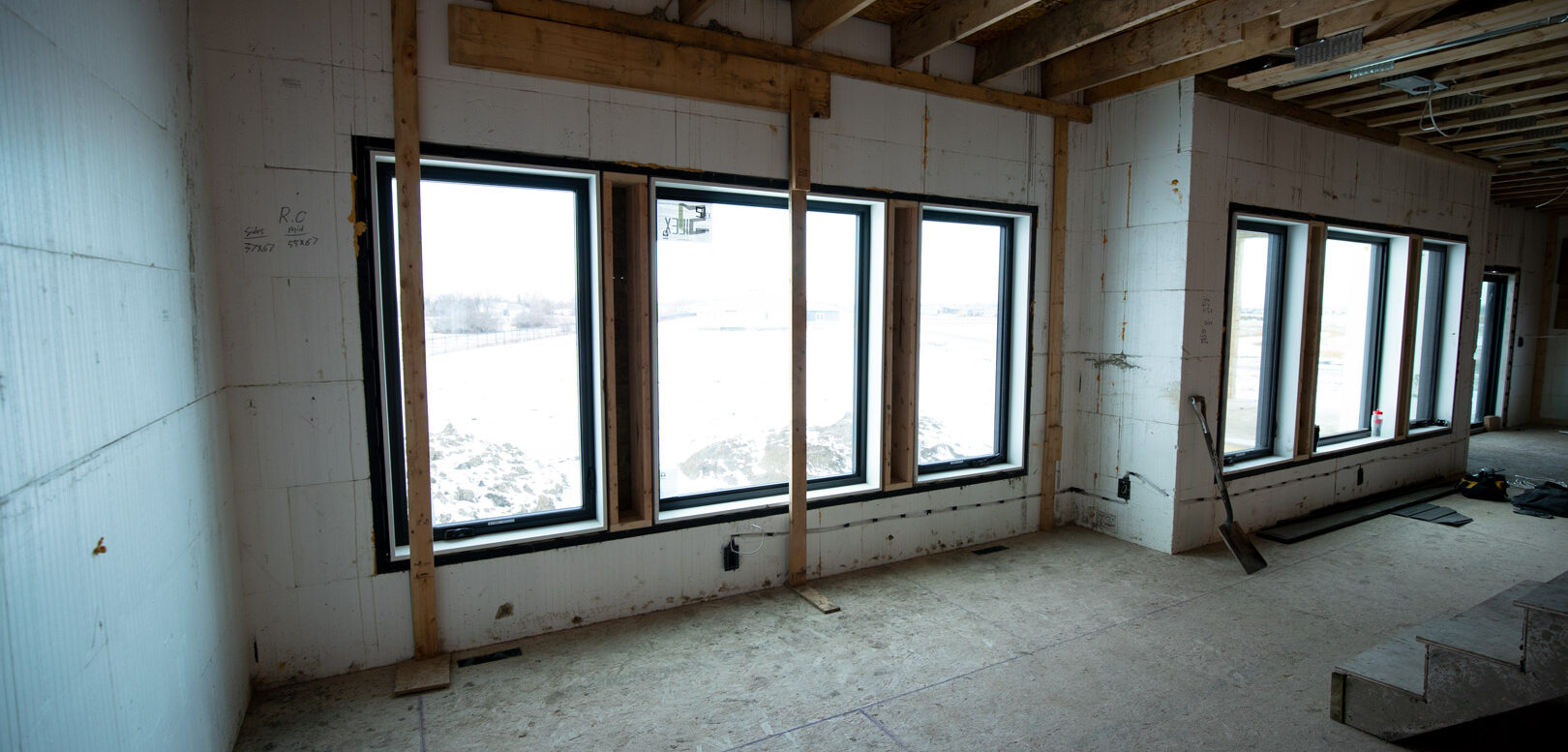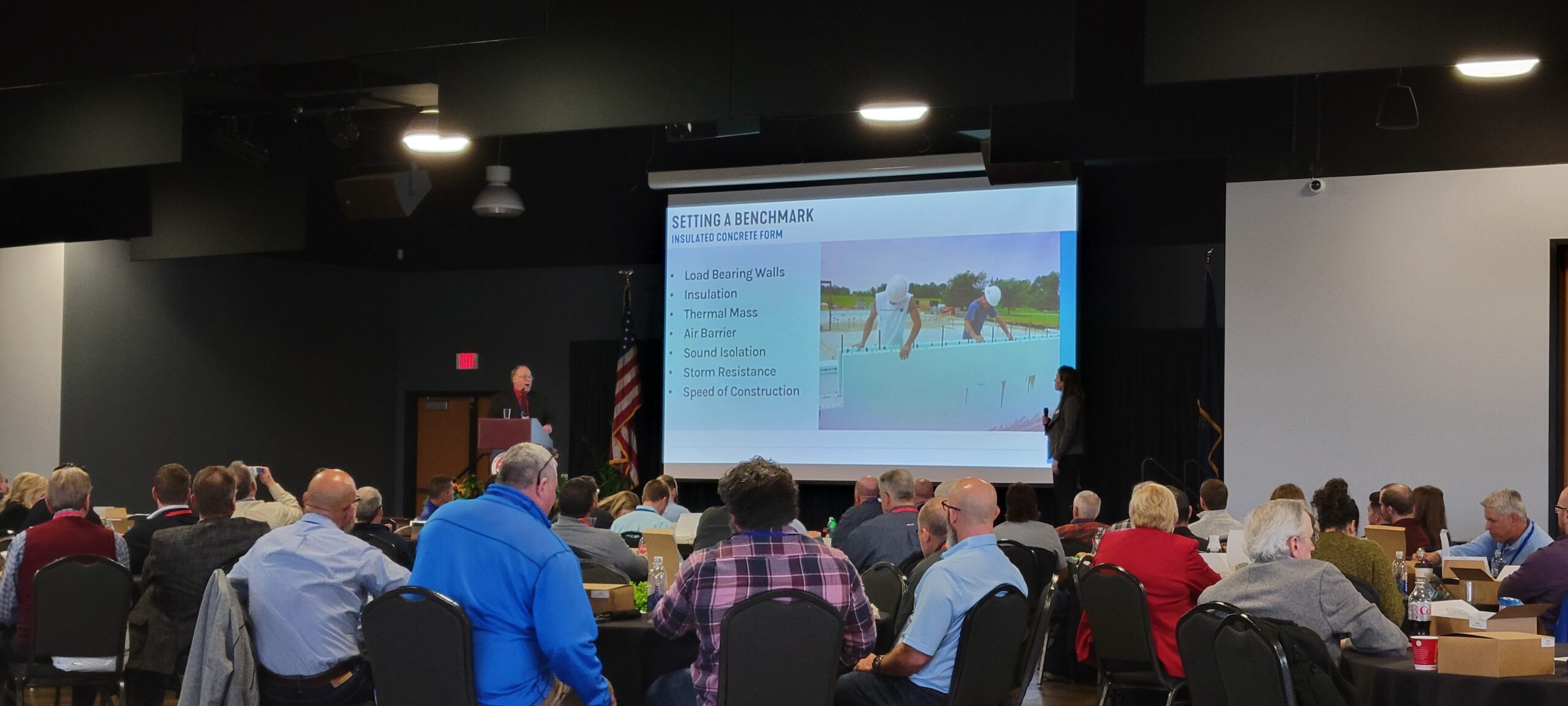Optimizing heating and ventilation for sustainable living with Nudura ICF
Insulated concrete form (ICF) construction enables incredible design versatility, with the blocks available in a variety of shapes and sizes, making them suitable for framing any style of building, from classic to contemporary, commercial to residential, and then finished with any cladding material.But buildings constructed with ICFs are also some of the most energy-efficient structures. With two layers of insulation on either side of the solid concrete wall, a standard-thickness ICF assembly is rated at R-23.59, with options available to achieve up to R-50. The continuous insulation creates an air-tight building envelope that eliminates the thermal bridging commonly associated with wood framing. This insulating power, combined with the thermal mass of the concrete, helps ICF walls regulate the interior temperature and reduce hot and cold drafts.It all adds up to a building that consumes almost 60 percent less energy for heating and cooling than wood-framed structures. This makes ICF construction the perfect solution for net-zero, zero-energy and passive house projects, while also earning LEED credits for energy performance, recycled components and indoor air quality. Continue reading more here.












